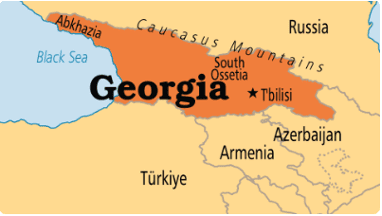PRAYERS FOR Georgia
Georgia has, for the most part, enjoyed positive social, economic, and political changes since the end of the USSR. Less corruption and more democratic reform point towards a more stable future. Openness to spirituality and Christianity in particular increased greatly in the early days of independence. The August War of 2008, when Russian troops briefly occupied much of the country, reversed much of the good economic progress. As a result, the Abkhazia and South Ossetia regions now function as de facto independent republics (supported by Russia), but these are unrecognized as countries by most of the world. Being Russia’s neighbour is not easy.
- Pray that Georgia’s development and progress might include not just economic and human development, but spiritual development also.
- Pray for access to the Word of God, and that through it many may find the Truth of the gospel.
- Pray also for renewal among Orthodox clergy; some small beginnings of this are occurring.
- Pray for a relationship of mutual respect and understanding between the Orthodox and other churches.
- Pray that Protestant and Independent churches and believers might conduct themselves in Christ-like ways, even amid hostility.
- Pray for Unity. The small but deeply divided evangelical community has taken significant steps toward unity and collaboration. Evangelical leaders across several denominations and ministries met in fellowship, committing to defend biblical values and to promote religious freedom within Georgia. Well-intentioned but ignorant foreign “help” for churches and increased influence of prosperity theology among many Pentecostals are causing further theological differences, even amid deliberate efforts to fellowship and work together. In all the efforts to unite however, one needs to keep the biblical principle in mind: “Better divided by Truth, than united in Error”.
- Pray against cultural irrelevance among youth. Young Georgians have lost interest in the Church, with a majority leaving during teenage years. Youth groups have grown in some cases where intentional efforts were made to reach out to young people in creative and relevant ways and where youth were empowered to lead. Pray for churches to thoughtfully share the gospel with young people in relevant ways.






